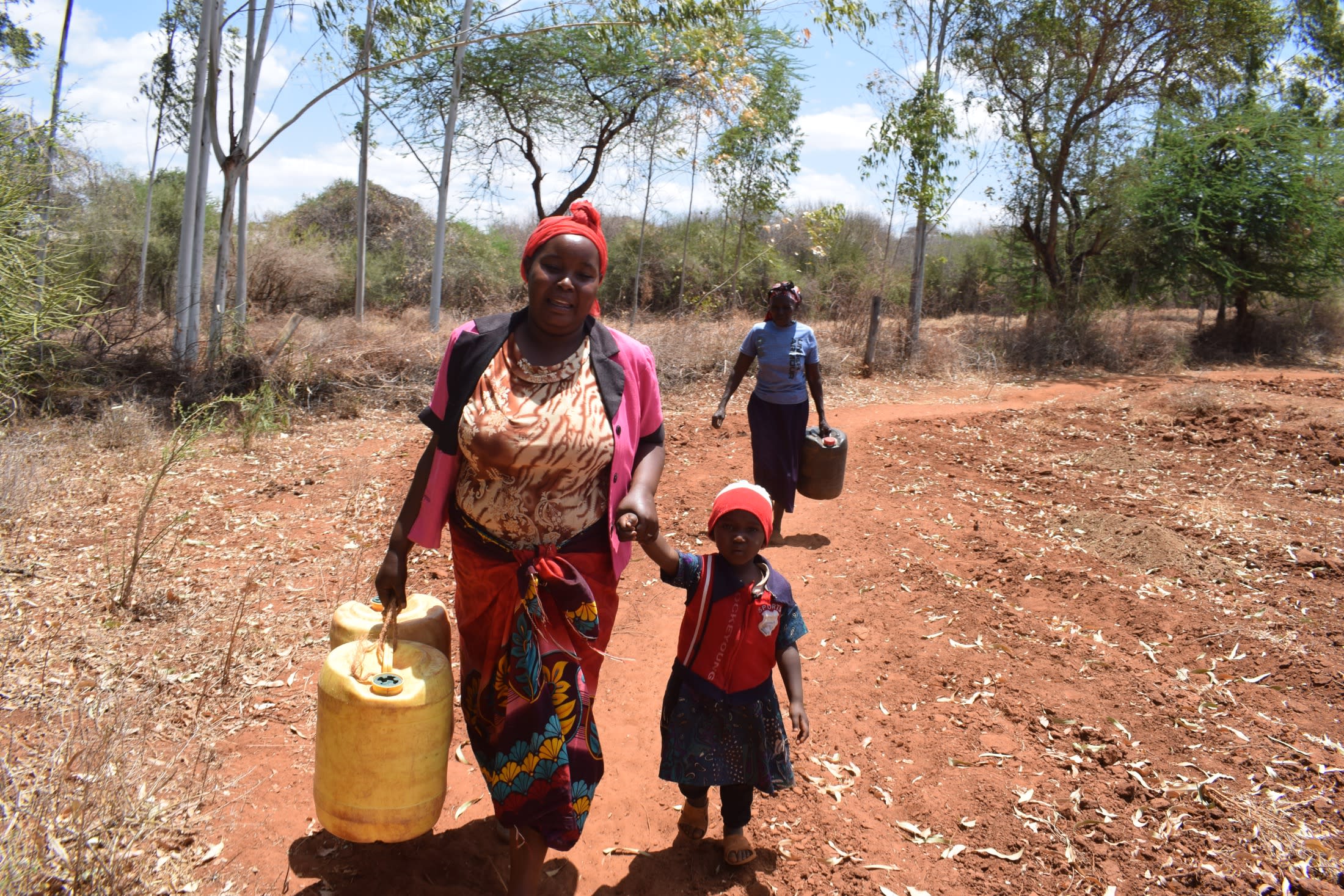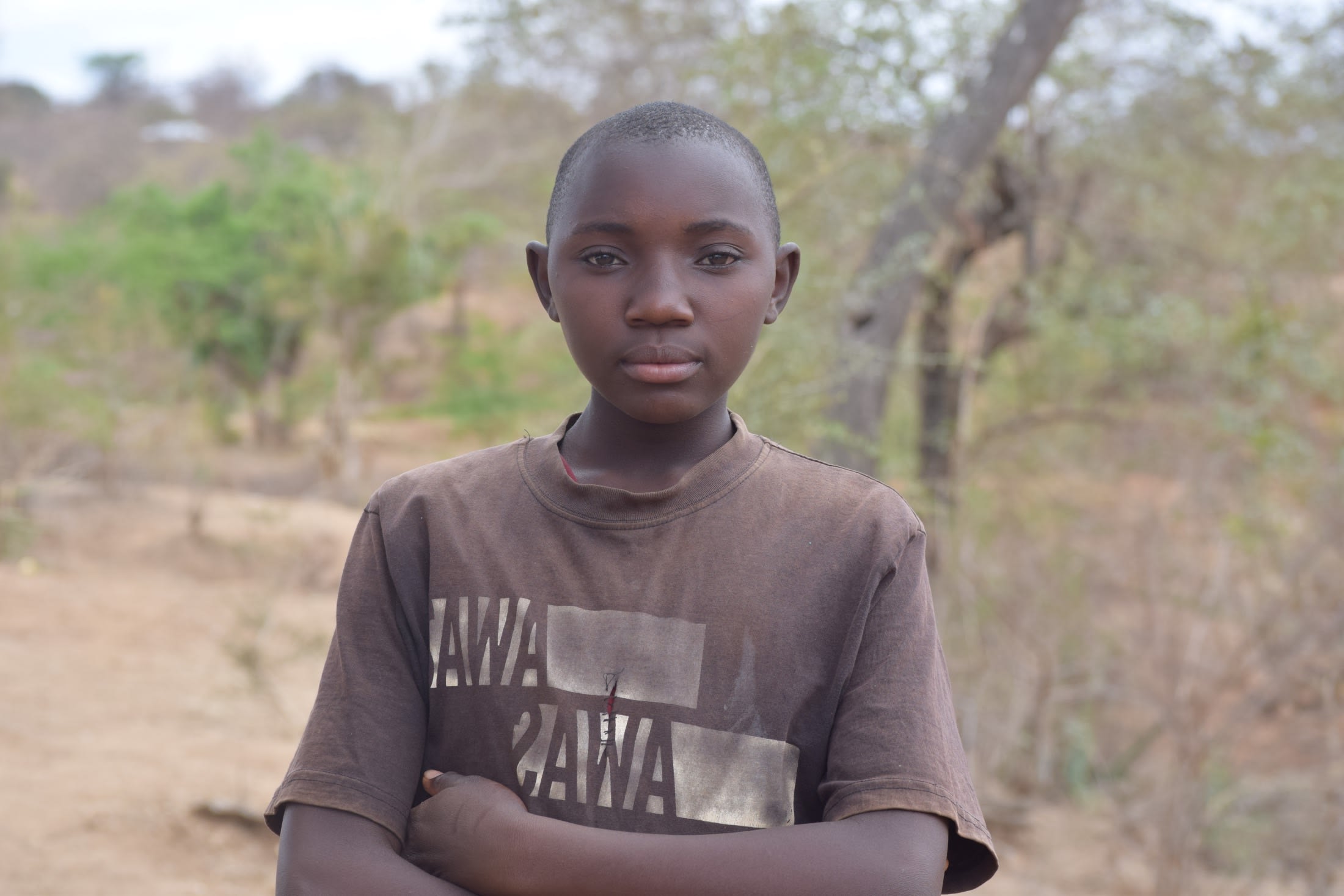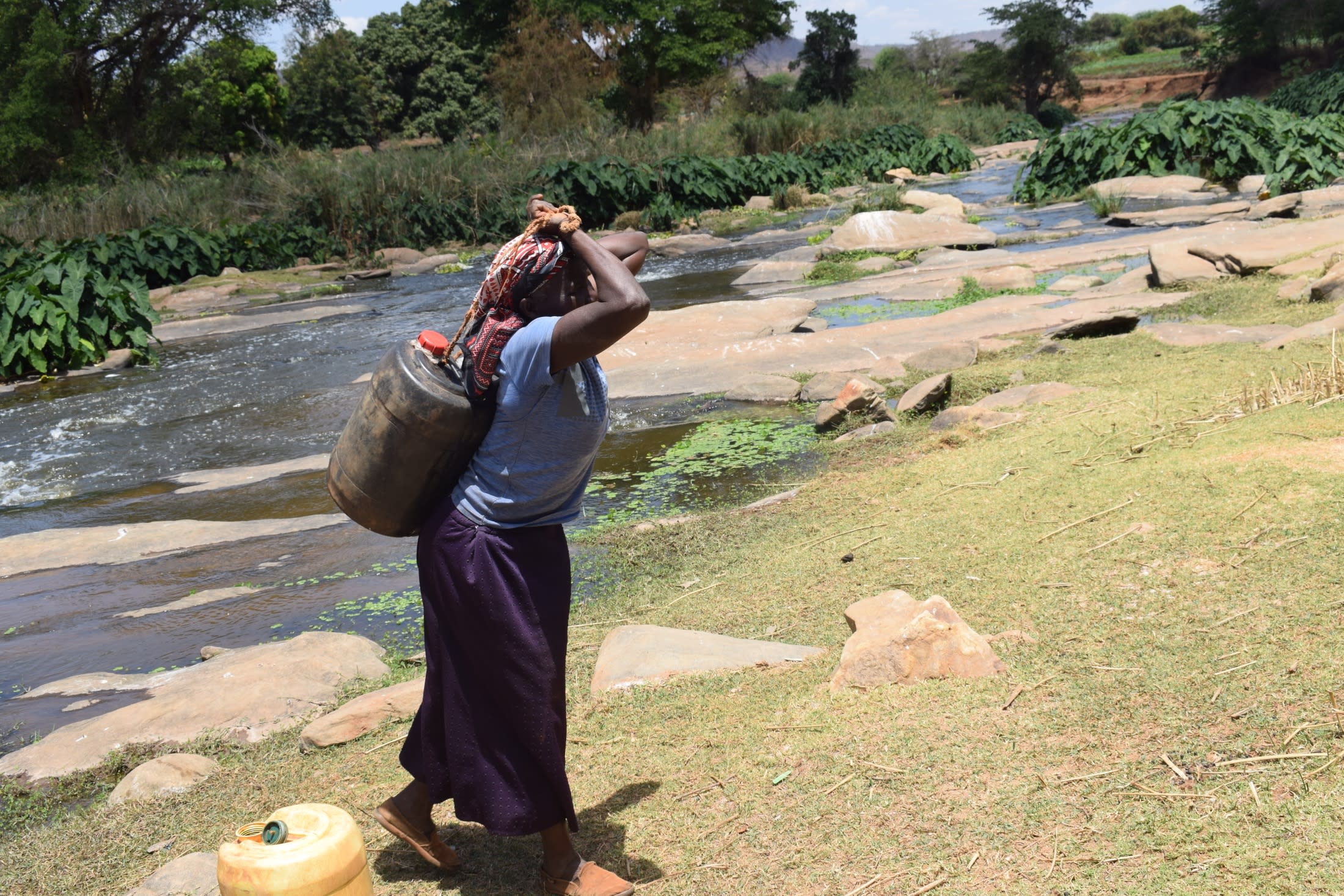The community of Kitile in the semi-arid region of southeastern Kenya has a large population of 980 people, all of whom need water. Currently, people must trek to the Athi River over dusty roads under the intense sun to collect water each day.
"It takes four hours for a community member to go to the river and get back," said our field officer, Jefferson Mutie.

As a result, people are exhausted and have little energy or time for anything else.
"At dawn, women prepare to leave for River Athi going to fetch water. The walk is such a stretch that after making one trip, it's not easy for a community member to walk for more trips. Many duties are left attended to due to limited time and distance," said Jefferson.

"I get very tired whenever I visit the river. If we get another sand [dam] and rains come, I am very sure the long trek will be a closed chapter, and I will resume my normal life once again," said 12-year-old Mutheu M.
There are a couple of sand dams and wells far away, but four different communities rely on them for water, so there is never enough water to meet the demands.
"Sometimes, when it gets very dry here, the shallow wells get flocked, forcing half of the population to look for water in the river Athi. If we get another sand [dam] in the area, we will be able to harvest more water for the community to use and also reduce the distance covered by members," said 68-year-old farmer Tabitha Mule, shown below collecting water at the river.

Although the river has plenty of water, collecting it comes with serious risks. The water is contaminated, and when people drink it, they are exposed to waterborne illnesses. Also, dangerous crocodiles and hippos live near the river. These predators make each water-fetching experience a harrowing one, as they have both injured and killed people in the past.
"[Another sand dam] will reduce the sicknesses reported, especially for community members who don't have easy access to clean water," Tabitha continued. "Implementing another sand dam will ensure a larger percentage of the community has access to clean water for drinking, cleaning, cooking, and agricultural activities, hence improving our income security."
Having a sand dam and well near this community will help keep people from walking so long to get water. Having water close by and readily available should improve the community's water security as well as their food and income security.
"Plenty of water in the community is an assurance of brighter days ahead for the community members feeling to be in dark days," concluded Jefferson.
Note: Our proposed water point can only serve 300 people per day. We are working with the community to identify other water solutions that will ensure all 980 people in Kitile community have access to safe and reliable drinking water.
What We Can Do:
Reliable Water for Kitile
Our main entry point into this community has been the Self-Help Group, which comprises households working together to address water and food scarcity in their region. These members will be our hands and feet in constructing water projects and spreading the message of good hygiene and sanitation to everyone.
Hand-Dug Well
This particular hand-dug well will be built adjacent to a sand dam project, which will supply clean drinking water once it rains. We have provided the group with the tools needed for excavation. With the guidance of our artisans and mechanics, the excavated well will be cased, sealed with a well pad, and then finished with a new AfriDev pump.
Excavation takes a month or more on average, depending on the nature of the rock beneath. Construction of the well lining and installation of the pump takes 12 days maximum. The well will be lined with a concrete wall including perforations so that once it rains, water will filter in from the sand dam.
This well will bring clean water closer to families.
New Knowledge
These community members currently do their best to practice good hygiene and sanitation, but their severe lack of water has significantly hindered reaching their fullest potential.
We will hold hygiene and sanitation training sessions with the Self-Help Group and other community members to teach essential hygiene practices and daily habits to establish at the personal, household, and community levels. This training will help to ensure that participants have the knowledge they need to make the most out of their new water point as soon as the water is flowing.
One of the most important topics we plan to cover is handling, storage, and water treatment. Having a clean water source will be extremely helpful, but it is useless if water gets contaminated when it is consumed. We will also emphasize the importance of handwashing.
The community and we firmly believe that all of these components will work together to improve living standards here, which will help to unlock the potential for these community members to live better, healthier lives.
We typically work with self-help groups for 3 to 5 years on multiple water projects. We will conduct follow-up visits and refresher training during this period and remain in contact with the group after all of the projects are completed to support their efforts to improve sanitation and hygiene.





 Protected Dug Well
Protected Dug Well
 Rehabilitation Project
Rehabilitation Project


























